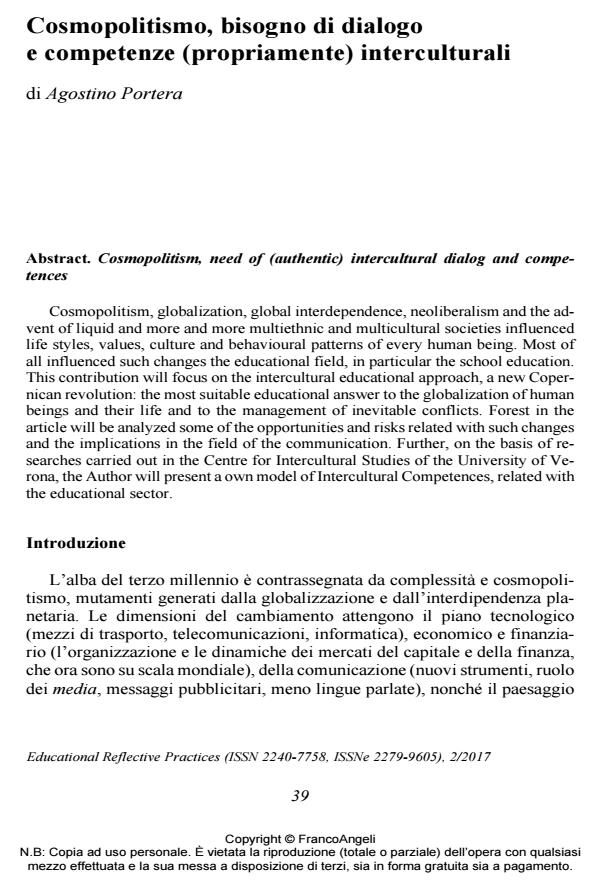Cosmopolitism, need of (authentic) intercultural dialog and competences
Journal title EDUCATIONAL REFLECTIVE PRACTICES
Author/s Agostino Portera
Publishing Year 2018 Issue 2017/2
Language Italian Pages 18 P. 39-56 File size 423 KB
DOI 10.3280/ERP2017-002004
DOI is like a bar code for intellectual property: to have more infomation
click here
Below, you can see the article first page
If you want to buy this article in PDF format, you can do it, following the instructions to buy download credits

FrancoAngeli is member of Publishers International Linking Association, Inc (PILA), a not-for-profit association which run the CrossRef service enabling links to and from online scholarly content.
Cosmopolitism, globalization, global interdependence, neoliberalism and the advent of liquid and more and more multiethnic and multicultural societies influ-enced life styles, values, culture and behavioural patterns of every human being. Most of all influenced such changes the educational field, in particular the school education. This contribution will focus on the intercultural educational approach, a new Copernican revolution: the most suitable educational answer to the globalization of human beings and their life and to the management of inevitable conflicts. Forest in the article will be analyzed some of the opportunities and risks related with such changes and the implications in the field of the communication. Further, on the basis of researches carried out in the Centre for Intercultural Studies of the University of Verona, the Author will present a own model of Intercultural Compe-tences, related with the educational sector
Agostino Portera, Cosmopolitismo, bisogno di dialogo e competenze (propriamente) interculturali in "EDUCATIONAL REFLECTIVE PRACTICES" 2/2017, pp 39-56, DOI: 10.3280/ERP2017-002004